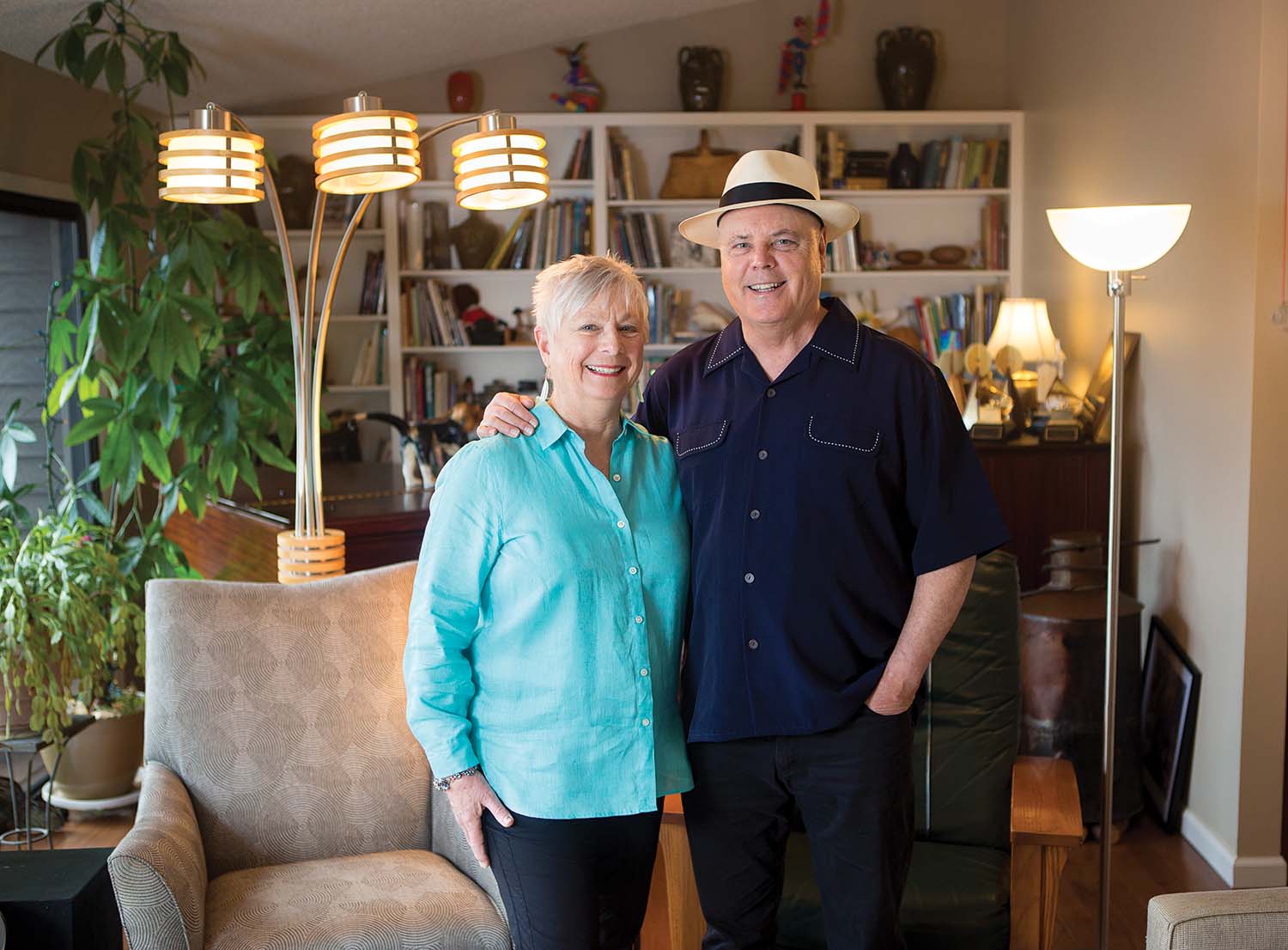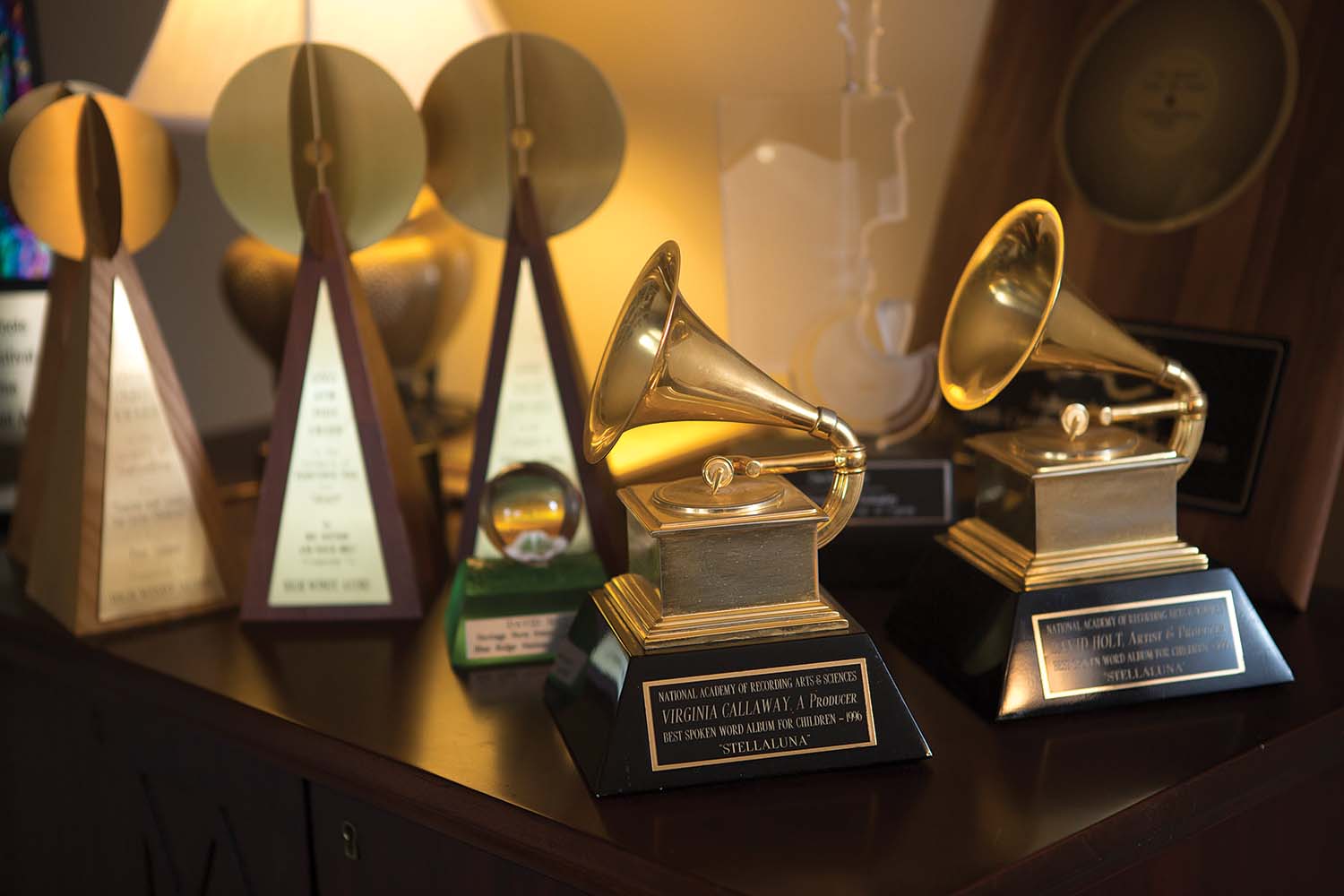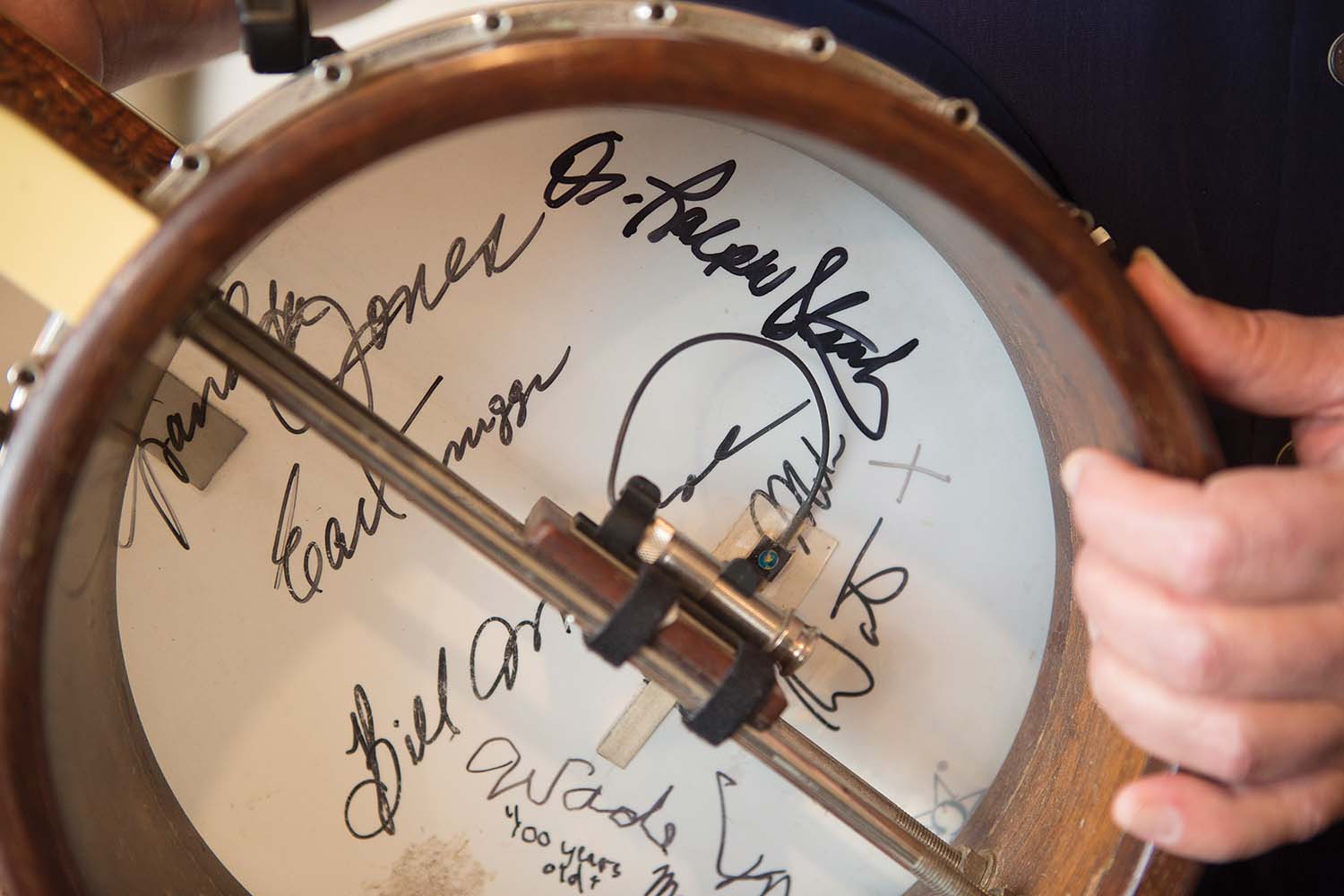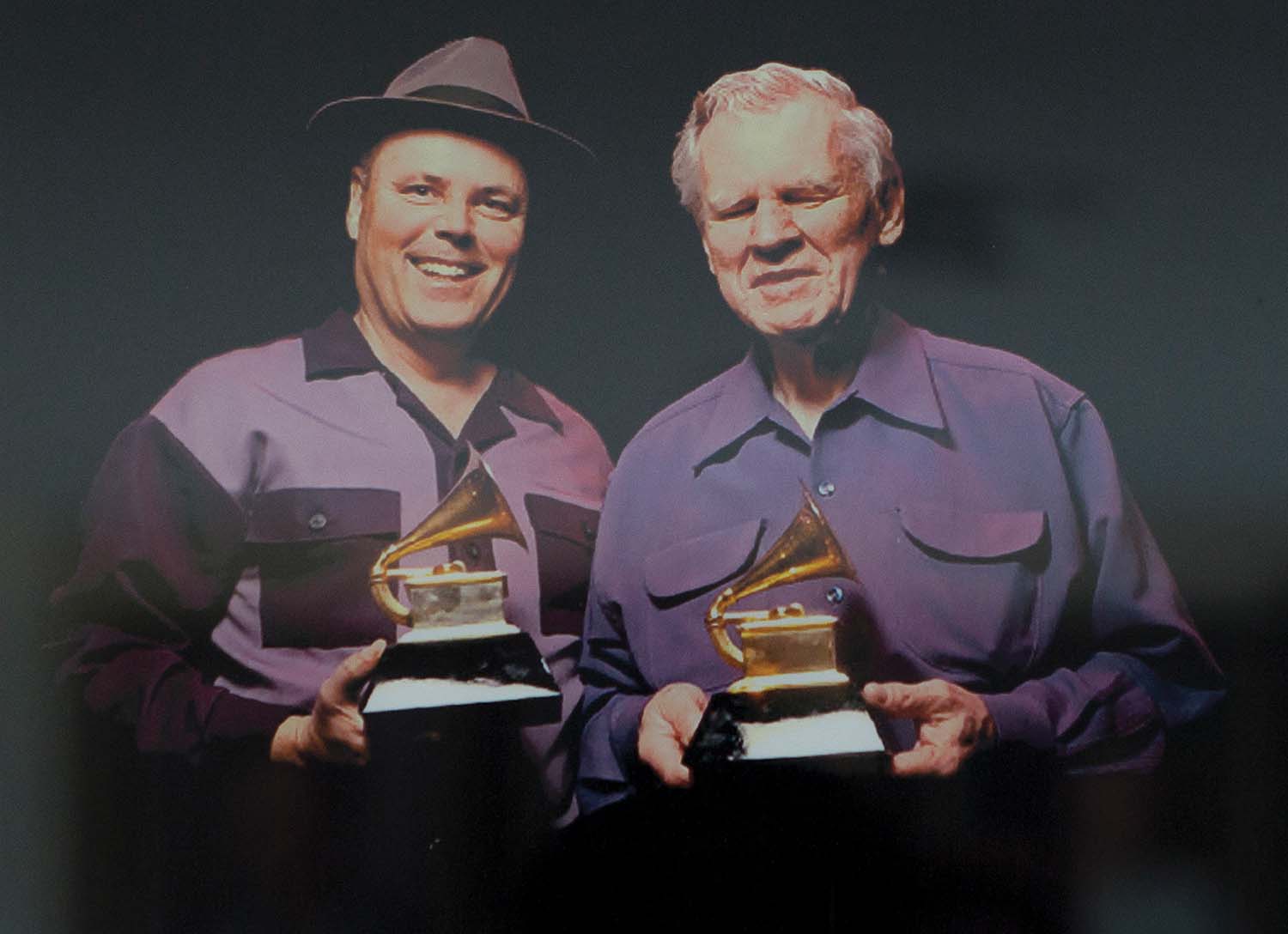
Never mind the trophies — two walls in David Holt’s mountaintop Fairview home testify to creative pursuits other than his decorated music career. In his kitchen, across from a bank of windows that invite the tall trees into the space, is a display of his own photos going back 50 years.
Holt studied photography at San Francisco State, where he was a participant in the famed Human Be-In concert in 1967, an event that triggered the Summer of Love. During the folk revival of the same era, he carried his camera on visits to chat with the old-time-music luminaries who became his mentors.
“I wasn’t systematic, but I took a lot of pictures on black-and-white film. Thank God I did. It may be the most valuable stuff I’ve done, because there aren’t many [images of those performers],” says Holt, who celebrated his 43rd wedding anniversary last year with his wife, the writer Ginny Callaway.

On another wall in his living room are pieces of multi-media art that Holt’s created over the years, incorporating his photos of his musical heroes, as well as of Ginny and their son Zeb. (The Holts’ daughter, Sara Jane, died in a car accident at age 10, in 1989; this loss brought them closer to David’s ultimate collaborator, country-blues icon Doc Watson, whose popular annual festival MerleFest is named after his guitarist son, who passed away in 1985.)
Holt showed his folk-art-inspired canvases — “Dellie’s Front Porch, 1975” (honoring Madison County ballad singer Dellie Norton), “The One and Only ‘Washboard Bill Cook,’” and many others — in an exhibit last year. Now, he says he wants to do another.
And then there are the Grammys, in the same room, sitting on top of a chest — Best Traditional Folk Album for Legacy, with Doc Watson, 2002; and Best Spoken-Word Album for Stellaluna, a children’s record he produced with Ginny in 1997.
Though best known for banjo, Holt is the master of 10 instruments. He’s been featured at the Grand Ole Opry, he founded the Appalachian Music Studies program at Warren Wilson College, and he’s hosted UNC-TV’s Folkways since 1980. Two years ago, he was inducted into the North Carolina Music Hall of Fame, and at press time, he was about to begin production on another season of his PBS series David Holt’s State of Music.
“I never had any delusions about being on TV or where this could go,” says the 71-year-old, who moved to Western North Carolina in 1973 to study mountain music. “I just wanted to learn how to play and be able to perform for people and make a little bit of money doing it.”

When did you begin wearing the hat and why?
I wasn’t bald at the time, but had a receding hairline and was going on Hee-Haw in 1980. I sat down in the makeup chair and the lady started drawing hair on my head and I asked, ‘What are you doing?’ She said that she had to do that or I had to wear a toupee or a hat. I said, “I’ve got a hat in the car.” I wore the hat on Hee-Haw and noticed after the show that people recognized the hat faster than my face.
Is it the same kind of hat all the time?
Yes, it’s a 1940s-style fedora hat. In the summer it’s a straw hat and in the winter I like these hats from a company called Borsalino that are made in Italy.
Do you get recognized in town?
If I wear the hat, it clicks with people, because they put the face with the hat and they’re like, “I know that guy. I don’t know from where I know him, but I know him.” Without the hat, longtime fans of the TV show or me onstage may recognize me.
What was your plan after college?
It’s funny you should ask that. I just found a bunch of letters that I had written my parents. In them I was apologizing to them for getting me through college because I was going to North Carolina. I planned to spend a year learning about music and then go back because I had a teaching credential. That never happened. I just fell in love with the place and the people.

How did your touring relationship with Doc Watson begin?
In 1998, UNC-TV asked us to do an Evening With Doc Watson special, and from that, people began to call the agent and ask for us. The thing I was adding was the different instruments and getting Doc to tell the stories from his life. There were plenty of interesting stories in his life and he realized that he loved doing it. He loved being led through it. Then we won the Grammy for Legacy, and that put us on the road for the next 14 years. I was still doing my own show, but Doc and I did something probably every other weekend. It was incredible to be with someone like him. He was very intelligent and very complex. He was a deep person, and it was a treasure to be around him and hear his life story over and over.
You’ve done so much in your career. What’s your personal highlight?
Winning the Grammy with Doc Watson. He was my musical idol. I loved his music and I loved his approach to music and how he could take an old song and make it new, or take a new song and make it old. To win a Grammy with him, talking about his life, was like “Ok, you’ve done your work now.” I felt really great about it. Playing with him all those years was a highlight, just getting to know him and become a part of the family. That was super important, too.
David Holt plays at MerleFest in Wilkesboro, NC, on Friday, April 27 and Saturday, April 28. For more information, see merlefest.org and davidholt.com.
